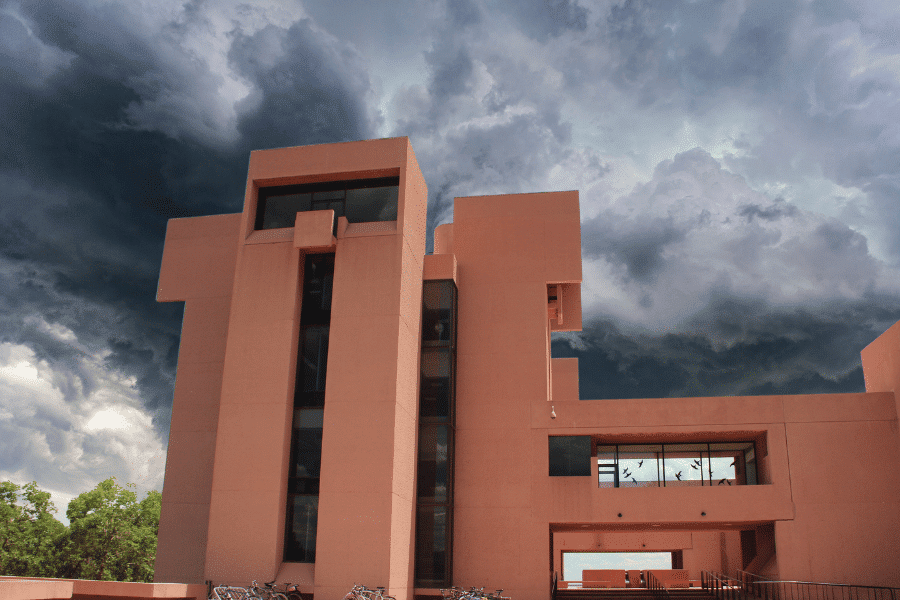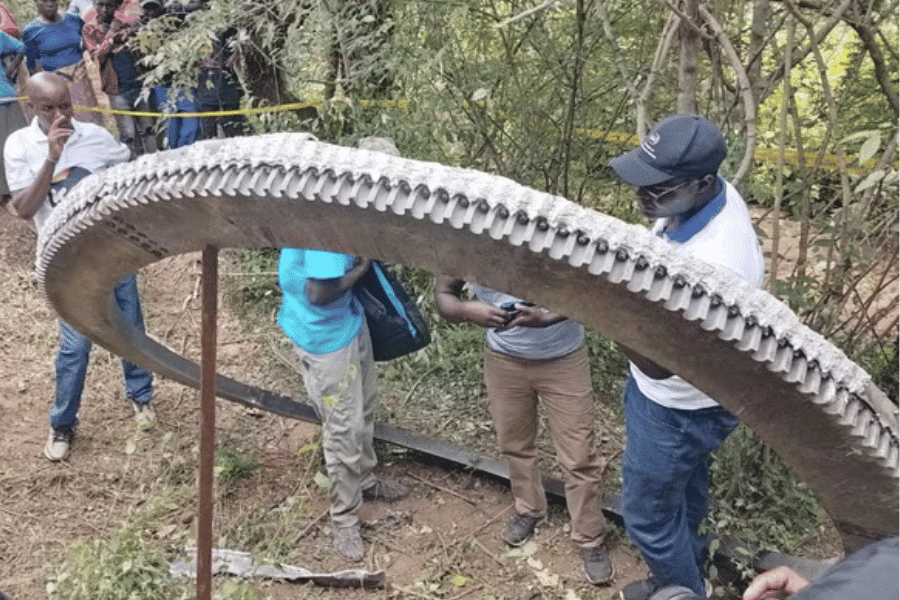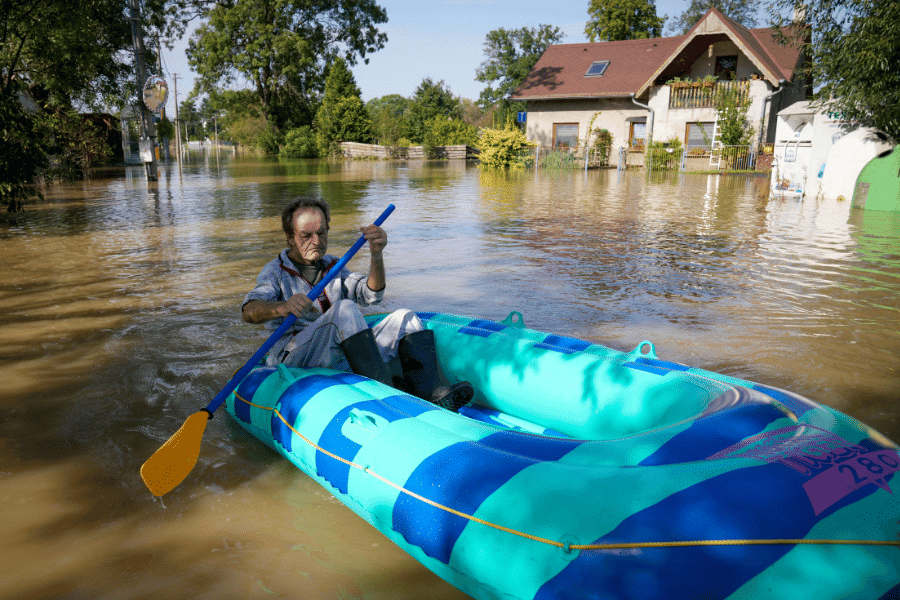
by Ashley Perl | 24 Dec 2025 | Decoder Replay, Environment, Science
There’s no denying climate change when a tornado rips through your town or a blizzard buries you in snow. So why blame the people who raise weather alarms? The National Center for Atmospheric Research in Mesa, Colorado set against a background of storm clouds....

by Ashley Perl | 15 Jan 2025 | Decoder Replay, Space, Technology, University of Toronto Journalism Fellows
Way up over our heads satellites and rocket parts orbit the Earth. Sometimes pieces of metal fall towards us. Most burn up in the atmosphere, but not all. A giant metal ring that fell from space onto a Kenyan village in December 2024. (Credit: Kenyan Space Agency)...

by Ashley Perl | 7 Oct 2024 | Environment, Europe
Even as different places adapt differently to floods and famine, heat and cold, we have to learn how to cool down our planet together. A resident paddles through a flooded street in Bohumin, Czech Republic, 17 September 2024. (AP Photo/Darko Bandic) This article was...

by Ashley Perl | 25 Mar 2024 | Environment, Space
Way up over our heads satellites and rocket parts orbit the Earth. Sometimes pieces of metal fall towards us. Most burn up in the atmosphere, but not all. Flames come out of a satellite falling towards Earth. (Illustration by News Decoder) Back in 1978, a Soviet...

by Ashley Perl | 7 Mar 2024 | Culture, Educators' Catalog, Europe, History, University of Toronto Journalism Fellows, Women
There isn’t much of a gender gap in Iceland, except in its maritime industry. But go back in time, and you’ll find women pulling in nets and steering the helm. A painting of Foreman Thurídur by Marian McConnell. Habitually clad in trousers, a rust-coloured...
For the world’s most gender-equal country, Iceland has a maritime industry that is surprisingly gender inequitable. Why and how has the status of Icelandic seafaring women regressed over the years? This piece by Ashley Perl gives an overview. In the article’s accompanying classroom activity, have students try their hand at uncovering the history of traditionally gendered professions in a research assignment well-suited for Women’s History Month.
Exercise: Read the article as a class, and then discuss the factors that have contributed to an increasing gender gap in the fishing and maritime industries in Iceland. Afterwards, have students select a profession that has a large gender imbalance in your country (perhaps teaching, nursing, engineering, etc.). Instruct students to research the history of the profession to see if these gender imbalances were the case historically, too. As part of this assignment, you may consider teaching research skills like assessing source credibility and using databases like Google Scholar.





